No products in the cart.
Popular Material for Paper Bags
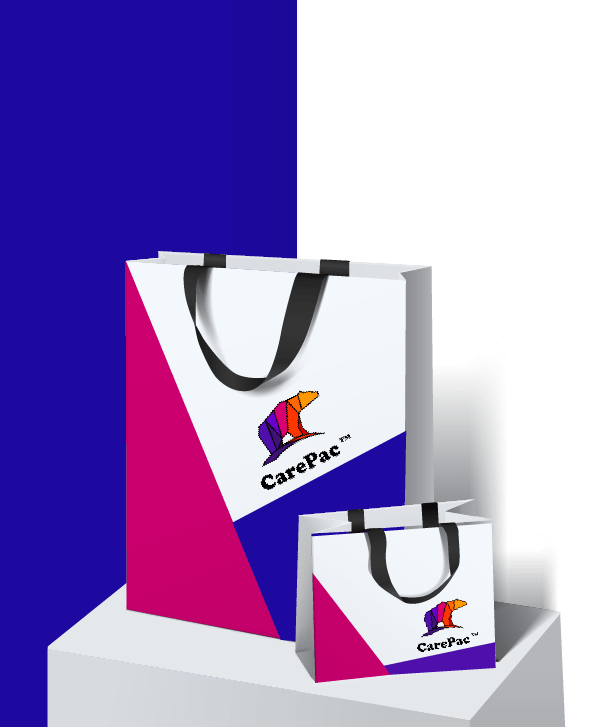

Paper bags have been gaining a lot of attraction in the packaging industry. Not only are they cheap to purchase in bulk and easy to customize, but as cities and states pass laws against plastic bags, they’re becoming the only packaging option for many companies. Even if plastic isn’t currently banned where you do business, transitioning away from plastic to recyclable, biodegradable, and eco-friendly materials like paper is a good move to make.
As with bags made from other materials, paper bags come in many shapes and sizes. Each of these bags serves a different purpose and are manufactured for different properties. In this blog, we’ll discuss the most common paper bag materials before diving into the different types of paper bags that are manufactured from these materials.
Bags Made from Paper
Paper bags have been gaining a lot of attraction in the packaging industry. Not only are they cheap to purchase in bulk and easy to customize, but as cities and states pass laws against plastic packaging, they’re becoming the only packaging option for many companies. Even if plastic isn’t currently banned where you do business, transitioning away from plastic to recyclable, biodegradable, and eco-friendly materials like paper is a good move to make.
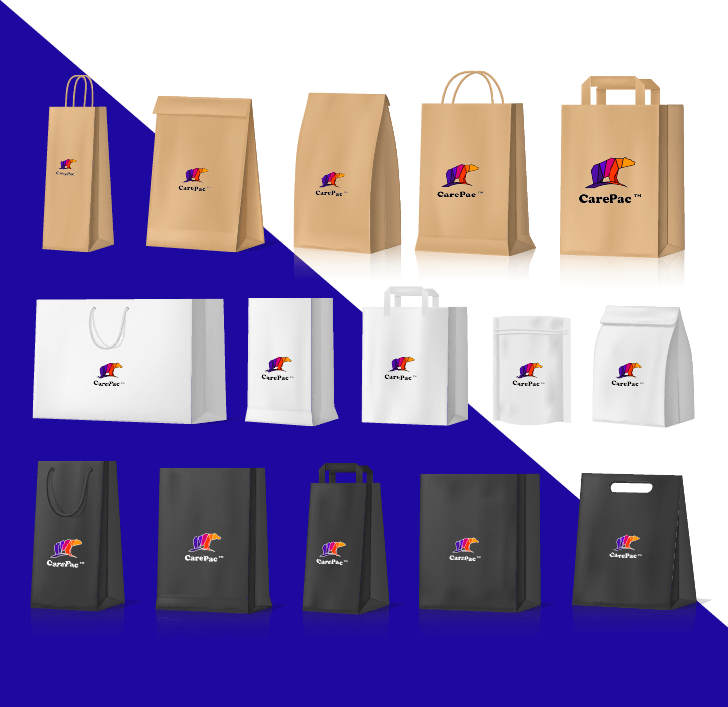

As with bags made from other materials, paper bags come in many shapes and sizes. Each of these bags serves a different purpose and are manufactured for different properties. In this blog, we’ll discuss the most common paper bag materials before diving into the different types of paper bags that are manufactured from these materials.
What's the difference between Kraft Barrier and Normal Paper Bag Material
Kraft Barrier materials are laminated films which combine kraft paper with other materials like aluminum or nylon as well as polyethylene. kraft barrier materials are not glued, but are laminated, while normal paper bags are made of paper that is glued together.
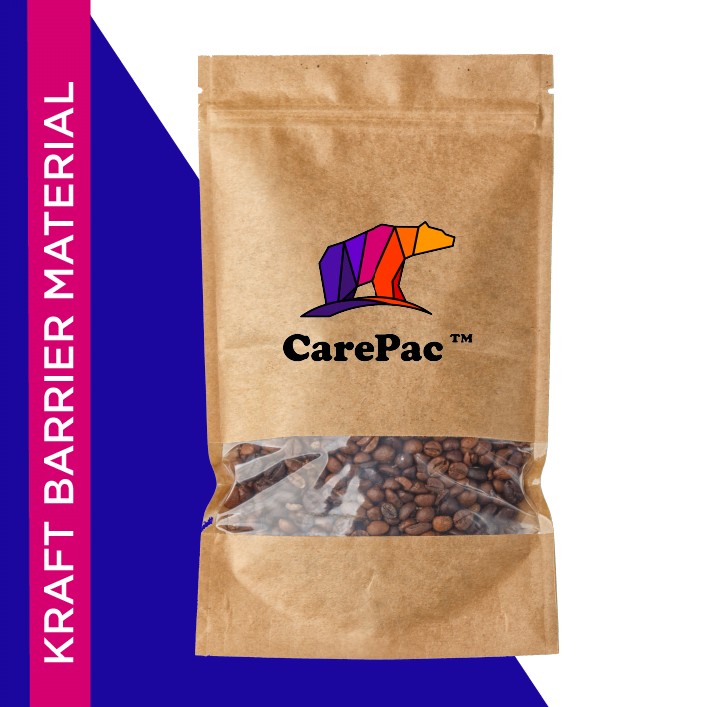

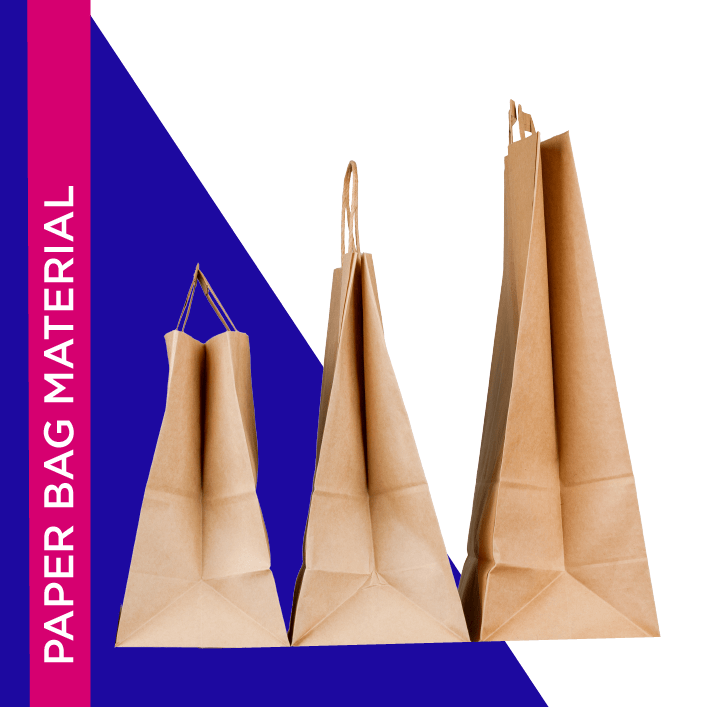

Common paper bag materials
Though the raw material for making paper bags is natural wood fiber, each of the materials included in this list has different properties because of different processing methods. Think of it like this: apple juice, applesauce, and apple cider are all made from apples, but since they’re processed differently the end result is different.
Kraft paper
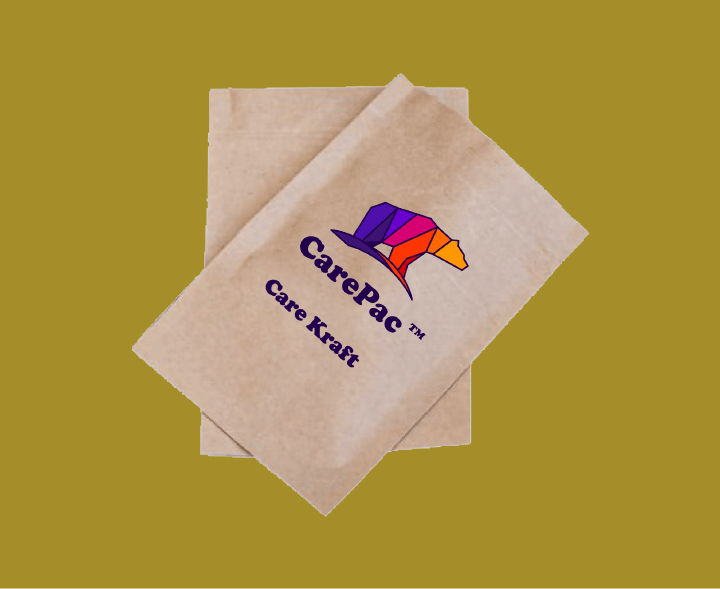

This is the most common kind of paper used in making paper bags, and customers come across Kraft paper bags most often at grocery stores. It typically weighs 80-120/g square meters, making it a light, yet strong, packaging option. It has great flexibility and tear resistance, so it can be used to carry heavy things. Its natural look is brown, but the fibers can be bleached white or dyed a different color after bleaching.
The largest advantage of brown Kraft paper is its cost. It is the lowest cost option on this list, making it the ideal choice for even the most for cost-conscious customers.
White cardboard
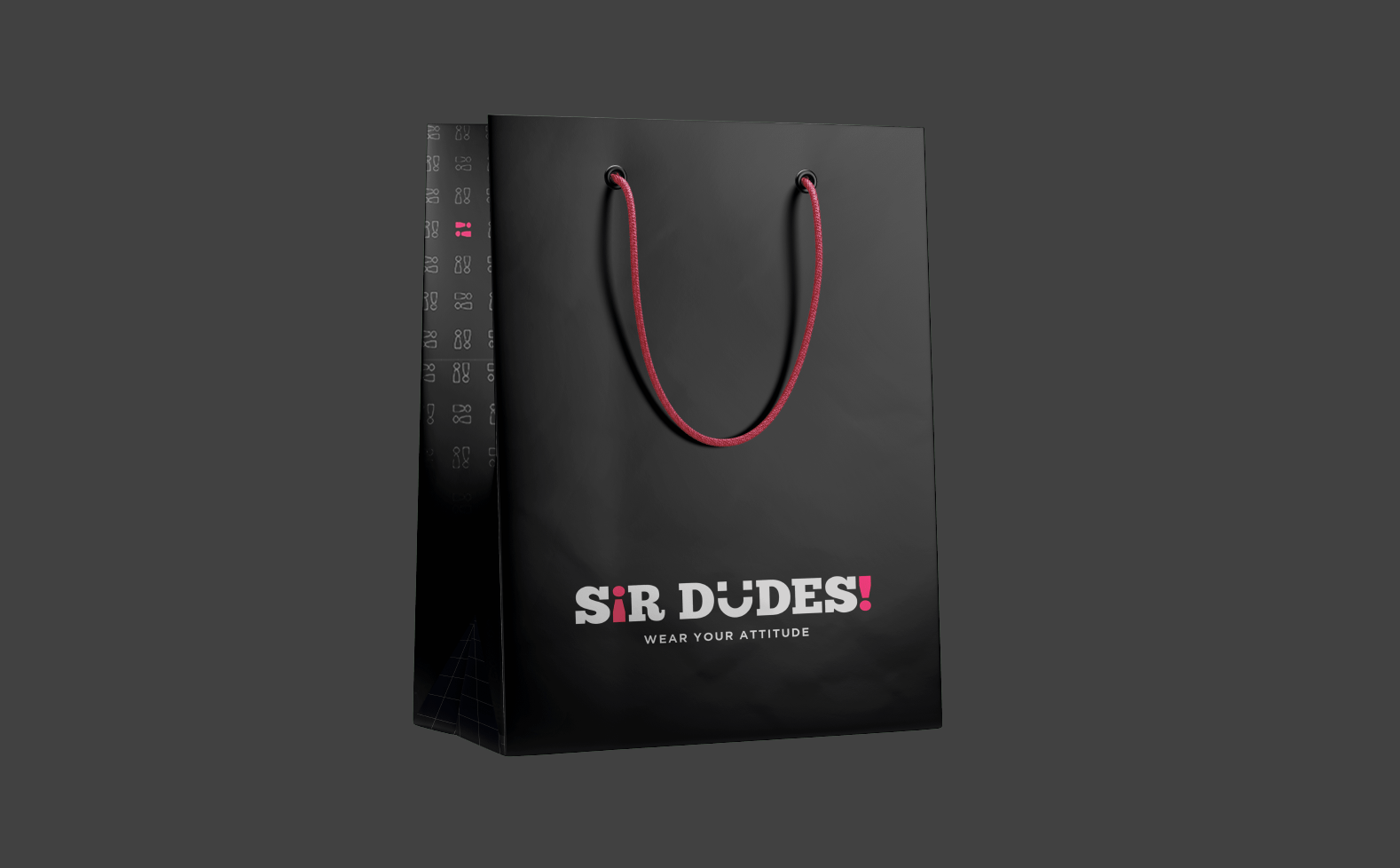

As the name would suggest, these bags are composed of single or multiple layers of bleached chemical pulp. The end result is a firm white bag with a smooth surface. If you’re looking for top-of-the-line gift boxes or bags, they will likely be manufactured from white cardboard. They tend to be thicker with a more premium texture, so they make wonderful promotional items for clients who expect something with a bit more oomph. These bags also often have handles
Coated paper
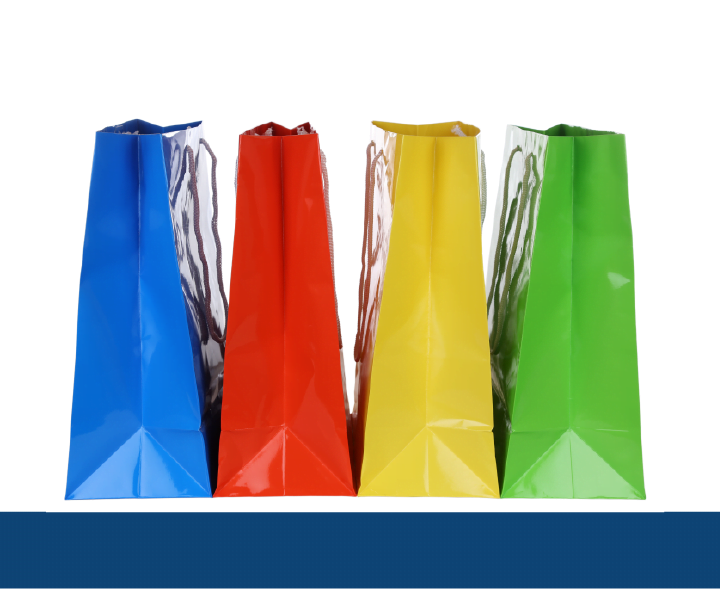

This is another common material used for shopping bags. It’s a little thicker than Kraft paper, typically flailing between 80-250g/square meters. It is also softer than white cardboard and can be coated on one or both sides. One of the primary benefits of coated paper is that ink latches onto the paper better, so it’s a great choice for companies that plan on using a lot of color on their bags.
Recycled/eco-friendly paper


This is another common material used for shopping bags. It’s a little thicker than Kraft paper, typically flailing between 80-250g/square meters. It is also softer than white cardboard and can be coated on one or both sides. One of the primary benefits of coated paper is that ink latches onto the paper better, so it’s a great choice for companies that plan on using a lot of color on their bags.
Common paper bag types
So, now that you understand the different types of paper bag materials, we think it’s important to explore the different types of paper bags made and their applications. Here are some of the most common paper bag types and their uses:
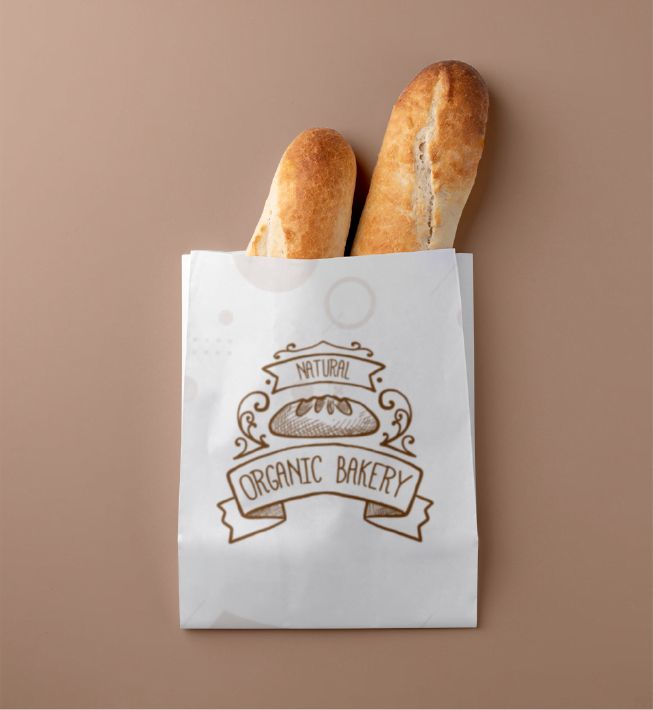

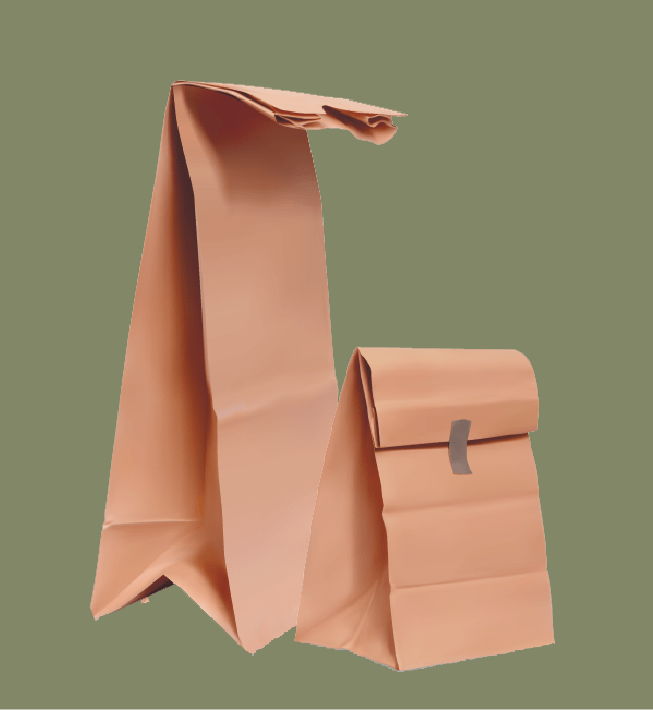

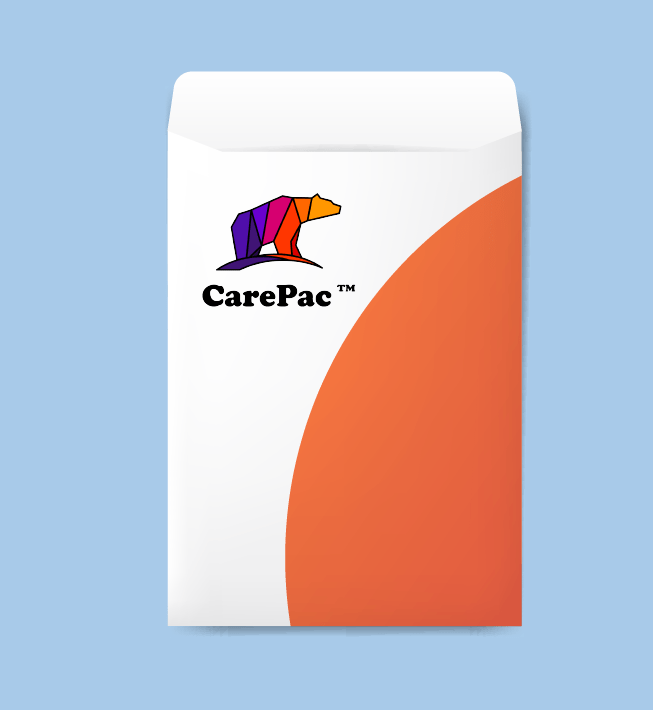

Stand on shelf bags
Sometimes called SOS bags, these are most often used for carrying food and drinks (think: brown paper bag lunches!) SOS bags come in a wide range of colors and are a great option for companies looking to package their products in an affordable and attractive way.
Pinch bottom bags
Similar to envelopes, these bags are most commonly used in bakeries. They tend to have a built-in grease-resistant lining, making them a great option for packaging food.
Merchandise bags
Retail chains and smaller brick and mortar shops both use merchandise bags to package their products and clothing. Sometimes online retailers ship their products in merchandise bags, too! They’re colorful, stylish, and often include the name or logo of the shop.
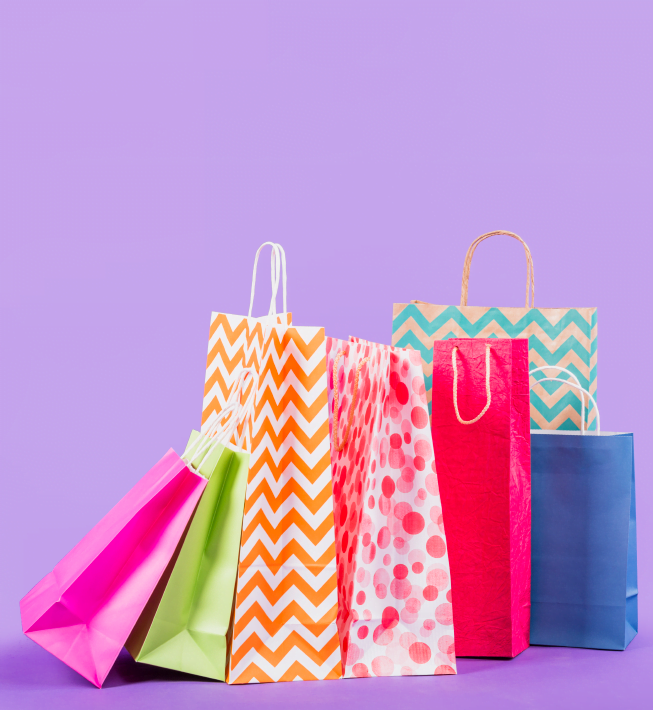

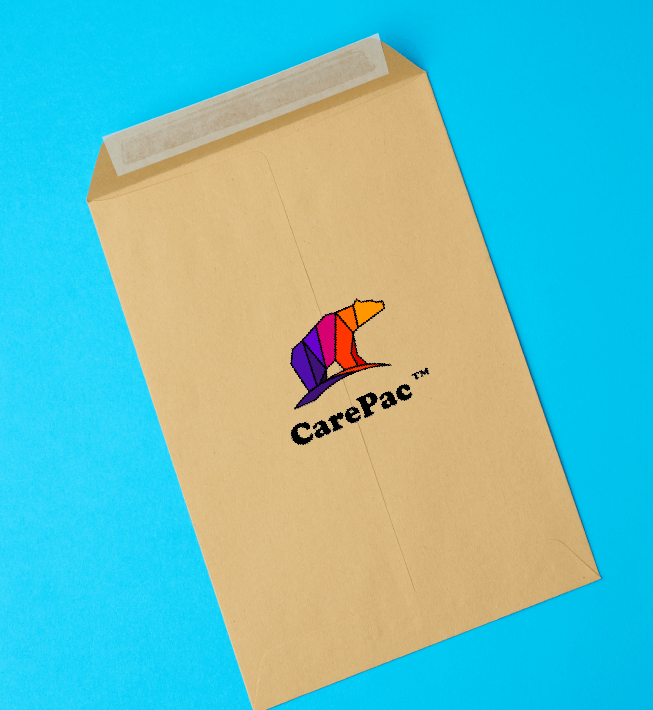

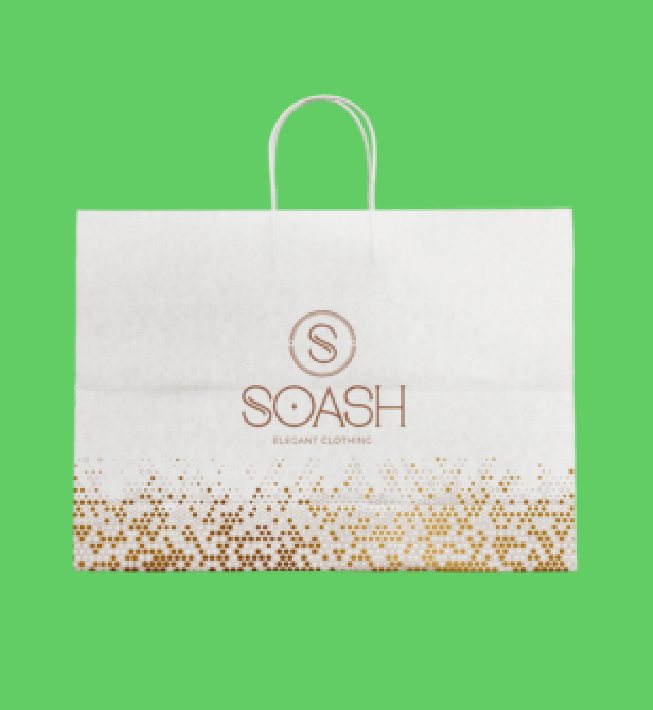

Party bags
These take the shape of standard Kraft paper bags but are bright and colorful - perfect for parties and to package gifts.
Mailing bags
These bags are used to ship small and large items, and often have a self-adhesive stirp for easy sealing and mailing.
Recycled bags
Like the bags mentioned in the previous section, these are manufactured from recycled materials (paper) or other waste materials (sugarcane pulp.)
FAQ on Brown Paper Bags
As one of the largest manufacturers of packaging, including paper bags, we get a lot of questions from prospective customers about our bags. Here are a few of the most frequently asked questions about paper bags in particular.
Q: Are all paper bags eco-friendly?
Yes, since paper bags are made from a natural material (paper) that easily degrades over time or recycled materials, paper bags are an eco-friendly packaging option for your organization. Some dyes are difficult to recycle, so check with CarePac before customizing your bag if recycling is important to you.
Q: Are all paper bag materials safe?
If you’re purchasing food-grade paper bags, yes -- they are safe to come into contact with food and drinks. Some bags, though, particularly coated bags, can be toxic if burned.
Q: What other options can I add to my bags?
At CarePac, we’re all about customization! This means you can add your logo, an image, brand colors, or other design elements to your bag. Some of the customizable features we can add to bags include zippers and hang holes.
The CarePac Guarantee
Still not sure? CarePac focuses exclusively on barrier bags and custom packaging for a variety of industries, from cannabis wholesalers to food and beverage distributors. We have exceptional customer service reps who are committed to making sure your order bundle is completed to perfection. With our CareDesign® process you can rest assured that your barrier pouches will be done right, no matter what.
Ready to experience the CarePac difference?
We think now is the right time to give us a try.
Tags

